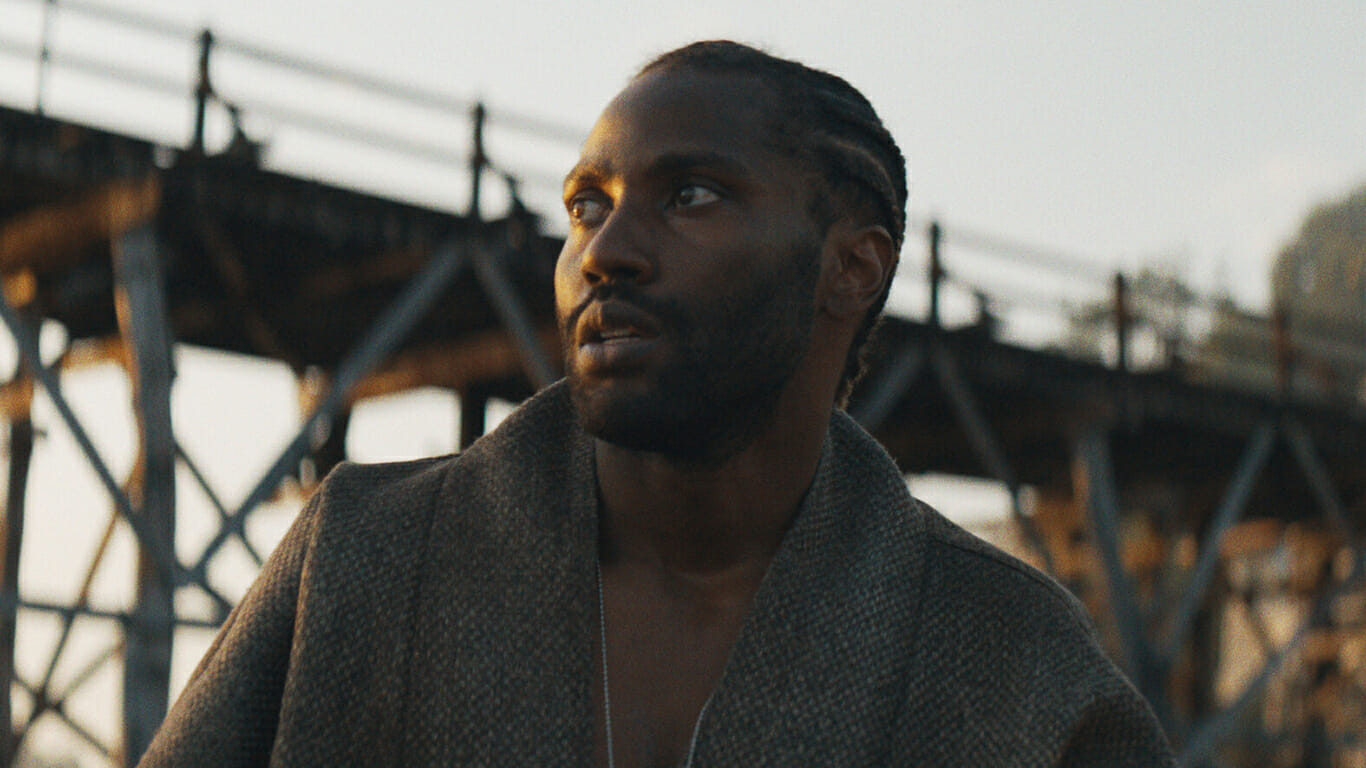The most interesting thing about stories about AI (not stories by AI, which are much less interesting) is the mirror they hold up to human existence. If consciousness can arise from wires and nodes, are we any more than neurons and impulse? Not if we’re of intelligent design—but if computer intelligence can turn against humans, could human intelligence turn against God? The subject begs theological questions. The Creator, aptly titled, begs moral questions too: for instance, if AI decide to nuke Los Angeles, what does that say about the species they’re modeled after (besides the reasonable desire to destroy Los Angeles)?
READ ALSO: Read all of Ryan Bordow’s movie reviews here
The Creator picks up years into the aftermath: the West went to war with AI (a very literal war against humanoid “simulants”) while the East continued to embrace them, making them friends, partners, and human-face-havers. Never content with letting others live differently, the U.S. military takes its war to the East, surveilling “New Asia” from a spaceship called the NOMAD, a colossal, winged panopticon that scans topography and fires death lasers with equally cold efficiency, crystallizing fears of drone warfare into a feat of menacing design. Under the gaze of the NOMAD lives Joshua (John David Washington), a man who, with his pregnant wife Maya (Gemma Chan), shelters a community of simulants.
Or so he wants you to think. When U.S. agents show up at his door, he’s revealed to be a U.S. spy, and apparently a terrible one—after years of keeping his secret from Maya, he outs himself by whisper-shouting “I’M UNDERCOVER” at the agents with Maya right upstairs. Maya, who does not have hearing loss, warns the simulants and runs, but they’re blown up by the NOMAD as they flee, and Joshua watches his wife and child die. Or so he resigns himself to think.
Cut to years later, still in the intro, and a disillusioned Joshua is approached with some news: the simulants have a superweapon, and the creator of AI, the elusive “Nirmata,” plans to help them use it. The weapon is near Josh and Maya’s old home, so he’s just the man to lead the military there. Also, says the most duplicitous colonel you’ve ever seen, we have this footage of Maya, who’s totally alive and working on the weapon; you find Maya, we find the weapon, everybody wins. The story takes off when things go awry and Josh finds the weapon himself: it’s a simulant child, the first of its kind. Joshua doesn’t want to kill her, now he’s protecting her, now he’s on the run. The child says she knows where to find Maya; the colonel will stop at nothing to find the child. Cue conflicts.
It’s a conceptually fertile setup, but the story is contrived and woefully unsurprising. Narrative shortcuts pile on and on: the child, dubbed “Alfie” because her codename is “Alpha Omega” (hmm, could that be biblical?), has the power to “remotely control all technology,” but her abilities “aren’t at full power” when they’d otherwise trivialize the small-scale battles. Convenient, but sure. When things go big, however, and Alfie’s batteries have charged in the sun a bit (that’s figurative, mostly), she’s the deus ex machina to half of Josh’s obstacles, soaring over tension with her problem-solving superpowers. This is the kind of script where someone captures the protagonist, points a gun at their head, and says “I am going to kill you now” before hearing a noise off-screen, leaving the room, and letting their captive escape. At too many points of possible suspense, the film provides its characters the path of least resistance.
Because it borrows from Christian mythology (again, the child savior of the persecuted is named “Alpha Omega”), it’s easy to see major plot twists coming if you’re familiar with the largest world religion. Still, it doesn’t mine that theology deeply; the Christ story is more useful as a liberation framework here, the Christ figure a synthesis of a broken relationship—machine and human, finally in harmony. The connections are mostly story beat parallels. Similar could be said of the Vietnam War allusions: the Asian settings, the innocents in paddy fields, the American imperialist monster. They’re broad strokes as set dressing; the cultural politics have largely been sublimated into sci-fi liberative spectacle.
The film seems to want to go deeper—its operatic, Hans Zimmer score and repeated use of “Clair de Lune” give off a sense of importance—but it’s too broad, by the numbers, and ultimately crowd-pleasing to honor the complexity of its themes. One decision, ostensibly made to separate the good guys from the bad, makes the film worse from every dimension (skip to the next paragraph to avoid a minor spoiler): AI had nothing to do with the bomb that destroyed LA. It was human error, blamed on the sims; all the fighting back was just self-defense, and the simulants have only ever wanted peace. They aren’t mirrors of human morality; they’re just blameless, feeling machines, dulling The Creator as a sci-fi story. As a political story, it stresses the evils of imperialism by making the oppressed inhumanly innocent, plastered in Asian faces but lacking complexity of character. The meat of the film’s influences is thinned out by its narrative.
At least the film excels outside its script. Director Gareth Edwards (Godzilla, Rogue One) is adept at visual worldbuilding, and The Creator proves no exception. Verdant Asian landscapes integrated with tech showcase a beautiful synthesis of natural and synthetic: a setting where the gentle whir of the simulants’ CPUs is just as innate as breathing. There’s real soul to the design work, from its trust in natural beauty to convincing practical effects and detailed sci-fi cityscapes (like if Blade Runner took a breath of fresh air). Edwards also excels at scale; I’ve always loved the way he shoots war, tracking several small skirmishes to capture individual cost and build to cumulative devastation, occasionally zooming out to show the diorama in collapse. Seeing triumph emerge from those conditions can be very moving.
But burdened by its script, The Creator thuds from its rare heights. This big-idea sci-fi has little to say about AI, and due to its shortcuts through nuance and barely developed characters, even less to say about being human.
★★ (2/5)




